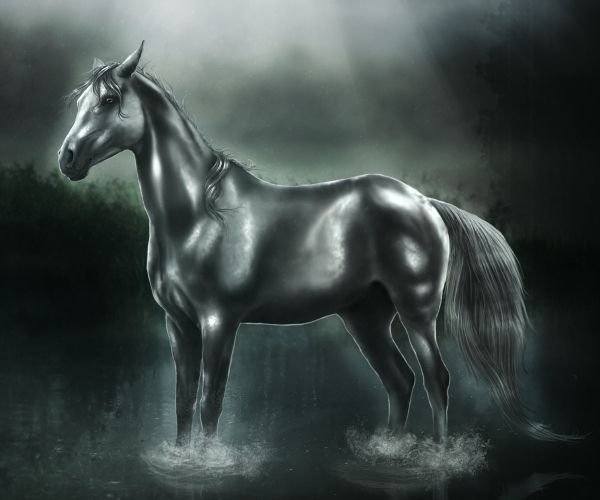
Are you alone, He had asked once, and she – the dumb girl, the stupid girl, the girl who was alone and believed He might be kind – had said yes.
Every day, she wonders if the word damned her, even though it’s a foolish notion – if she had said no, He would have surely taken her, just as He would return to her all these years later and take her daughter.
Mostly the memory sits in her skin because the yes meant she had been the one to start it. She had walked into the proverbial lion’s den.
(She’d said no, after that. Over and over. Said it, screamed it, cried it. He never listened.)
(She’d once wondered why He had asked at all, but she knows, now.
It is a pleasure to burn, and the pleasure is all the richer when they ask to be burnt.)
And maybe that’s the game she plays now, as she coxes and hides her lightning as if she is not a force to be reckoned with, as if she is not a magician with a wicked heart who is no longer sure of who or what she is.
“Elve,” she repeats the girl’s name because she can.
“I’m Cordis.”
The filly questions her, which is foolish, for whoever this man is Cordis does not doubt she could destroy him.
“Yes,” she says, and her tone is confident. The lightning aches inside her skin. The girl confuses her.
She wants to protect her, as if she could undo what had been done.
She wants to punish her, for being weak, for saying yes.
Cordis lives in her own duality, and the two parts quibble inside of her.
”I could burn him where he stands.”
I could burn you where you stand, she thinks.
Part of her aches at the thought. Another part breathes heavy, eager.
she said it was a mistake to let them burn her at the stake
Cordis
(and she learned a lesson back there in the flames)
